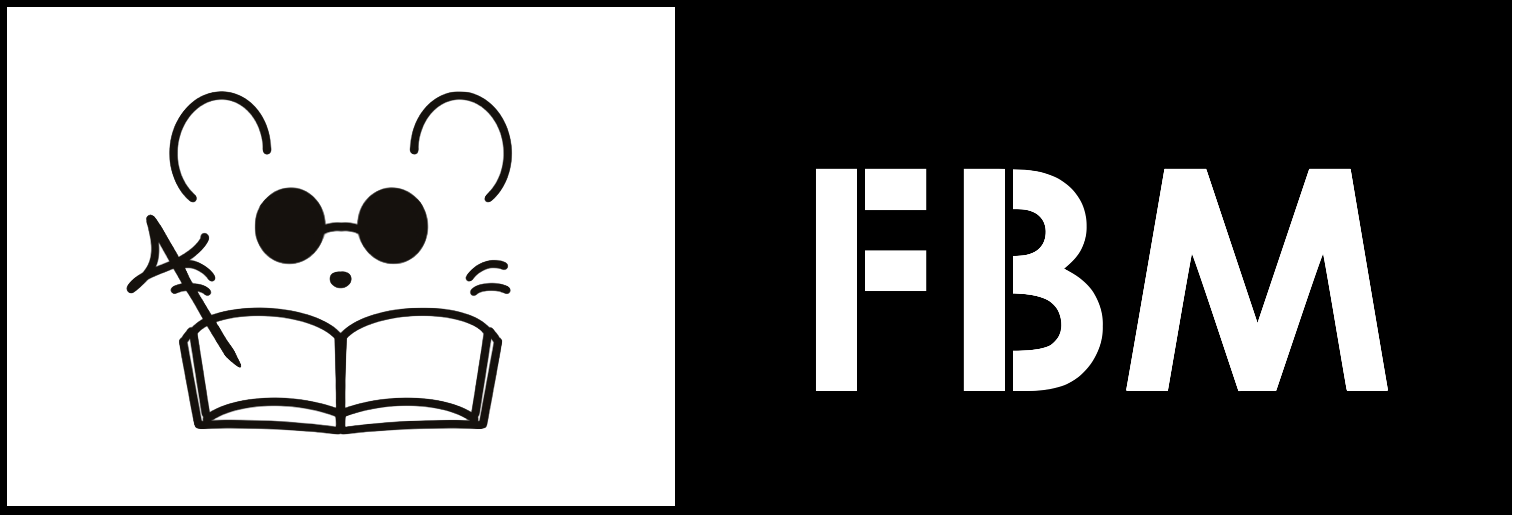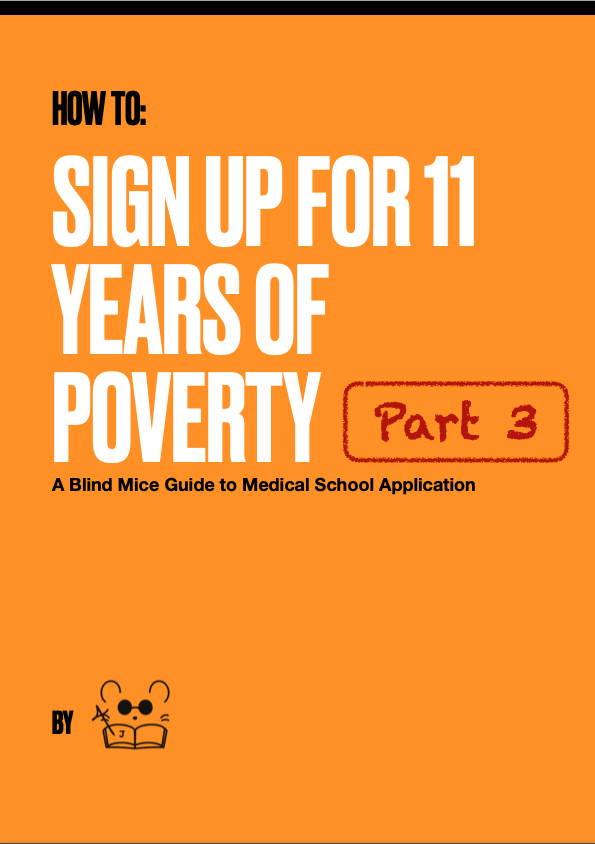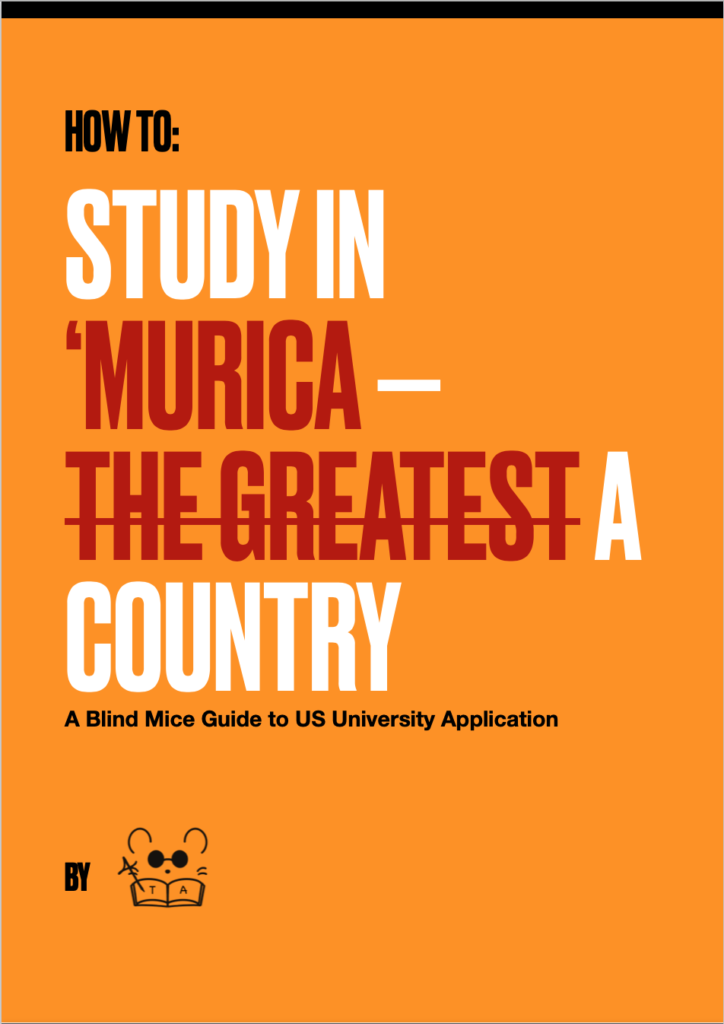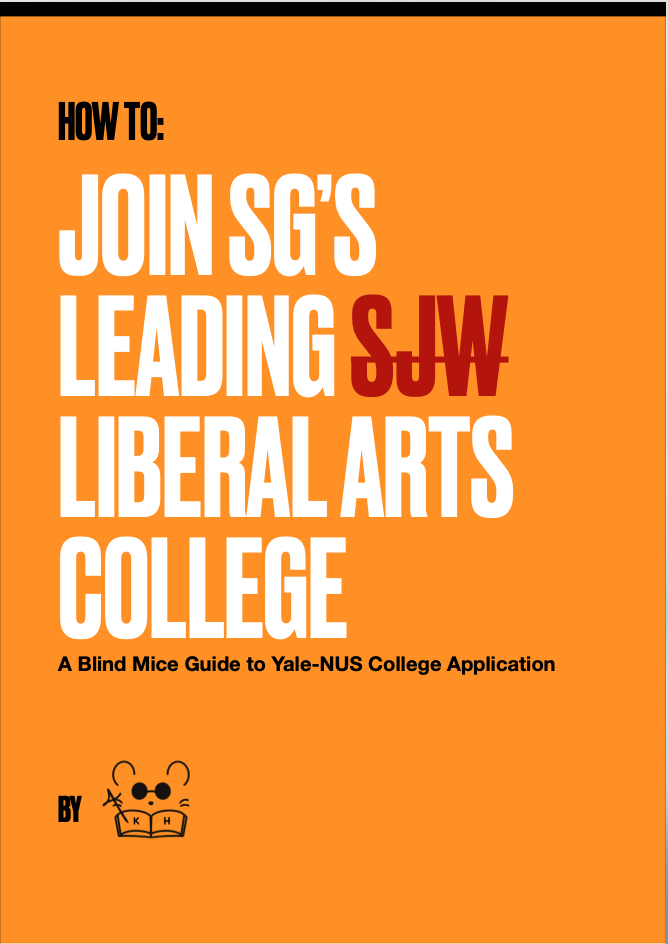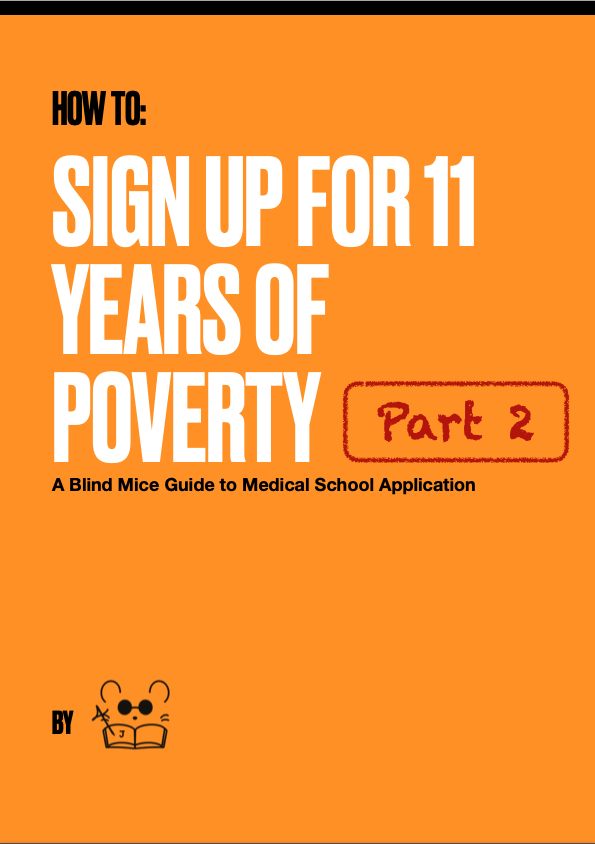Disclaimer:
J is a polytechnic graduate who was offered admissions to NUS Yong Loo Lin School of Medicine and the Yale-NUS & Duke-NUS Liberal Arts and Medicine Pathway in 2019.
This lowly medical student would like to add that this section is written according to the Non-Disclosure Agreements (NDA) with the various schools. All information presented is based on personal pre-COVID experience that can also be found on the public domain (Refer to references in the FBM Medical School Application Guide)
While there may be some changes to the selection process post-COVID, the attributes that the medical schools are looking for will probably remain the same (assuming that finding the cure for COVID is not the new minimum criteria). All advice given is in no way representative of the views of any institutions (duh).
This is the final article of the three-part Signing Up for 11 Years of Poverty Series – A candid take on applying to medical school. For more exclusive content, download the full guide here.
Assuming that you have been shortlisted, you will be invited for an interview with the respective schools.
Important Note: If you are rejected after sitting for the interview, you can only apply again the following year through ABAS (this applies for both schools).
Interview Process
| YLL | LKC | |
| 1 | Situational Judgement Test | – |
| 2 | Focused Skills Assessment | Multiple Mini Interview |
1) Situational Judgement Test (For YLL)
SJT is a pencil and paper MCQ test that you will have to turn up for. It is usually on a different date as FSA.
This is more of a test to see if you are a decent human being, so there is nothing for you to study. There are no right or wrong answers either.
The questions are mostly case studies and scenarios where you either have to choose the appropriate course of action or judge the appropriateness of the action.
If you really want to prepare, you can get a rough idea of the questions from this UKCAT SJT question bank. They are quite similar.
The bottom line: Be yourself and answer according to your morals and gut feeling. After all, the answers you give are supposed to reflect your decisions in real life. If the question is healthcare-related, ALWAYS REMEMBER PATIENT FIRST.
2) Focused Skills Assessment (For YLL)
The Focused Skills Assessment is a series of interview station that aims to identify qualities that medical students should have in a friendly/low-stress setting. It comprises of:
2 Role Play Stations
- You will be given 1 minute to read the task outside and 5 minutes to prepare. Similar to an oral examination, plan your responses and pre-empt some possible obstacles.
- You will be asked to interact with an actor in a given scenario. The scenarios are non-medical related and often relatable to your student life.
- There will be an assessor observing who may ask a few questions about your experience at the end of the scenario.
- Be a good listener and act how you normally would.
1 Group Station
- You will be grouped with 5-6 other candidates and be given 1 or 2 minutes to read a task. There will also be a time limit to discuss and plan within the group.
- Instead of competing to answer or lead the discussion, try to complement your teammates in areas that they may be lacking.
- Don’t talk just for the sake of talking. Think carefully about what you are going to say and make sure to back it up with reason. Don’t be afraid to disagree either, but make sure you can justify your stand.
1 Task Station
- You will be given multiple manual tasks to complete within a limited time.
- No medical knowledge or technical skills is required. It is more of an assessment to see how well you cope under pressure. As a close acquaintance once said, “Acting calm and composed is the privilege of the mighty.”
- Since there are multiple tasks involved, assess and plan your course of action. Try to start by tackling those in which you are most confident in completing first.
- At the end of the station, the assessor may ask some questions about your rationales and feelings.
1 Personal Statement Station
- A 15-minute station where you have
to kneel, beg and sell your soulto defend your motivations for studying medicine. Show that you have considered the reality and alternatives of being a doctor (and why you are still only settling for medicine). Refer to Part 1. - The assessor will be asking questions based on your personal statement, so be sure to be able elaborate, substantiate and/or bring up more examples outside of your PS to back your claims.
- You can prepare by thinking of possible questions and answers (just search online).
- Familiarise yourself with local healthcare affairs and the basic principles of medical ethics
3) Multiple Mini Interviews (LKC)
The MMI (multiple mini interviews) is similar to the FSA, but with 8 stations (each 5 minutes long). Watch this video to understand how it works.
As the LKCSOM MMI is adapted from the UK medical school admission process, you can find a lot of resources online to help with your preparation. 6med is once again a really good resource for you to start with. You can also consider buying their crash course materials.
In general, the 8 stations can be classified into these categories:
- Personal Statement: Similar to the one found in FSA, but only 5 minutes long. So be sure to make your answers sweet and concise.
- Role Play: Similar to the one found in FSA.
- Picture Stimulus: You will be given a picture to look at and an interviewer will ask your thoughts about it (similar to an oral examination). Try to relate it to healthcare and share your thoughts beyond the picture (the picture should just be the springboard for your discussion).
- Public Issues: You will be asked to discuss a broad question relating to a public issue in Singapore, which may or may not be related to healthcare. Prepare by getting up to date with current affairs and forming some opinions about it.
- Hypothetical Scenarios: Similar to the role play stations, but instead of acting it out, you will be responding verbally about your actions and decisions regarding the scenarios or task. As the response will be verbal, make sure that your thought process is clear and logical.
Visit the 6med link I shared above to find out more.
General Tips for the Interview
Reflect: Know your personal statement and portfolio really well. Ask yourself “why medicine” and follow up with each successive answer with more ‘whys’ until you hit bedrock in your reasoning. Even though this question may not come up in your interview, this practice will help to solidify your thought process and motivations. Be certain of your personal values and convictions.
Read: Look through ‘common’ medical school interview questions to strengthen your thought process. You can have mock interview sessions with your peers or lecturers to get some feedback. Not only read up on current affairs related to healthcare and the general wellbeing of the population but also form your own opinions about them (this is what makes you unique)
Refer to the Reading List chapter to gain more insights into medicine and life as a doctor. These books and articles may offer new perspectives that you can weave into your own answers during the interview.
Be Yourself: AKA a decent human being with some empathy and sincerity. If you are a natural snake and asshole, there is no point acting otherwise. Even if you do manage to act your way into medical school, do you really want to maintain that facade for the next 11 years? Maybe you should consider applying to Business School.
Personal Thoughts
You can try hard, but don’t be a tryhard.
YLLSOM was never my first choice when I was applying to medical school. I did not even consider applying to YLLSOM until I received mediocre BMAT results. I went for the FSA with little pressure and no stakes (since I didn’t want it anyway). Due to this mindset, I was really comfortable being myself throughout the entire session and left without any regrets. I told myself that if I still could not get into medical school with my real personality, it just meant that I was not suitable for it.
On the flip side, I ended up being really awkward and canned during my MMI as I was over conscious of my every word and action. The 5 minutes given never seemed right for me as I kept having either too little or too much content to cover. After being rejected, I emailed NTU to get some feedback on my MMI performance. It turned out that I was in the 25th percentile.
Sometimes chasing a girl too hard turns her off even more. Especially when you are already an ugly bastard.
